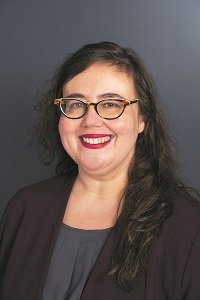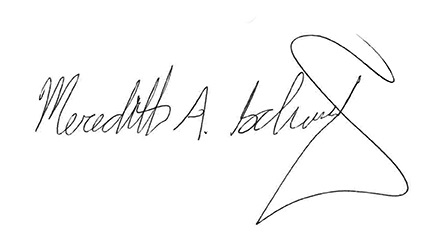Science for Everyone | Editorial
Much emphasis on STEM in libraries has focused on preparing patrons for careers in related fields, whether they are kids and teens or adults looking to retrain. But providing everyone with the tools necessary to grapple with the impact of STEM on their medical decisions, votes, and consumer choices, even if they never work in scientific fields, is just as crucial.
Connecting the dots between STEM and info lit
 In the March issue, we talk to public, academic, and LIS librarians grappling with the latest iterations of misinformation and disinformation (p. 26). Both have been with us long before the term “fake news” gained currency, but new twists require new tactics to fight. Filter bubbles (talking only to people who agree with you), algorithms (how social media and search engines decide what to show you), and deepfakes (skillfully falsified videos), not to mention the sheer increase in volume from social media, mean that libraries’ efforts to help patrons find the truth must also evolve.
In the March issue, we talk to public, academic, and LIS librarians grappling with the latest iterations of misinformation and disinformation (p. 26). Both have been with us long before the term “fake news” gained currency, but new twists require new tactics to fight. Filter bubbles (talking only to people who agree with you), algorithms (how social media and search engines decide what to show you), and deepfakes (skillfully falsified videos), not to mention the sheer increase in volume from social media, mean that libraries’ efforts to help patrons find the truth must also evolve.
A few pages later, librarian Cate Schneiderman suggests essential titles in popular science for a well-rounded collection (p. 44), accompanied by a Q&A with pop science author Mary Roach by LJ associate editor Stephanie Sendaula. Seeing the two juxtaposed made me think that popular science—not only suggested reading but science, technology, engineering, and mathematics (STEM) programs, activities, and equipment in libraries—may be an important tool in the fight against misinformation.
Some common misconceptions, such as persistent false claims about vaccinations, may be addressed directly by popular science titles. But even those that have no direct connection to current hot topics can demystify the scientific method and present it as something that is not only comprehensible, but also fun for laypeople.
Much emphasis on STEM in libraries has focused on preparing patrons for careers in related fields, whether they are kids and teens or adults looking to retrain. That is, of course, important, and never more so than now, with ongoing job loss caused by the pandemic. But providing everyone with the tools necessary to grapple with the impact of STEM on their medical decisions, votes, and consumer choices, even if they never work in scientific fields, is just as crucial.
Our era is marked by distrust of medical and other experts—often justified, especially in marginalized communities, given that rights violations like forced sterilization and nonconsenual, unethical experimentation are not only recent history but current events. Focusing on gatekeeping can also keep out voices that may be without institutional backing but have legitimate contributions to make, and lend credibility to those with credentials who nonetheless don’t represent the consensus in their field, such as the less than three percent of actively publishing climate scientists who don’t agree that climate warming is caused by humans. It can also inflate the reliability of experts in one field when they comment on another, such as computer scientists applying their models to epidemiology.
A focus instead on checking how the source reached a conclusion has the potential for far more accuracy, especially in an open access publishing landscape, which gives lay readers unprecedented access to scientific output—if they can make heads or tails of it. Most preprints, written for a scholarly audience, are challenging at best for a nonscientist reader.
Works of popular science, on the other hand, not only translate their particular subject into accessible and entertaining language, they also build up the reader’s understanding of those parts of the process that are broadly the same across all experimental learning. Informal experimentation, driven by patrons’ own curiosity, can serve the same function, whether in a library Maker lab or at a kitchen counter. Together, those readings and experiences could make it easier for patrons to evaluate the next newspaper article they see that, for example, draws a grandiose conclusion from a very small sample size.
The more we make science literacy available and appealing to everyone, not just those who choose to specialize in the field, the more patrons will be equipped to assess for themselves the claims they encounter. As Dr. Nicole A. Cooke points out in her Q&A (p. 30), the emotional aspect of information behavior is an important component. Classroom work is essential, but the for-fun element that a public library can bring to the topic can make it memorable and build patrons’ confidence, grounded in experience, that science is for everyone—including them.

RELATED
ALREADY A SUBSCRIBER? LOG IN
We are currently offering this content for free. Sign up now to activate your personal profile, where you can save articles for future viewing









Add Comment :-
Comment Policy:
Comment should not be empty !!!